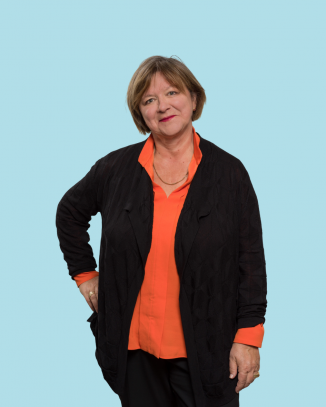Jobs
Currently, there is no open position. Please check back in at a later time!
Have you ever wondered who the people at Euresearch are? How did they get here and what makes working at Euresearch special for them? To explore these questions, we sat down with some of our colleagues from the Euresearch network. Find out more about their backgrounds, their experiences and what they love most about being part of our team. Enjoy reading.
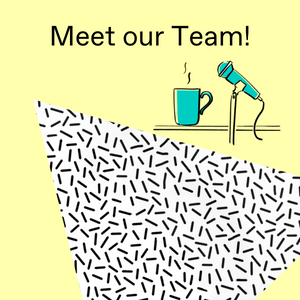
Nice To Meet You - Matthew Whellens, National Contact Point (NCP)
more information less informationWhat has been your career path before Euresearch?
I am an aerospace engineer, having graduated from the University of Pisa, in Italy. Before joining Euresearch 6 years ago, I worked primarily in the turbomachinery industry, both in the United Kingdom and in Switzerland.
What is your role at Euresearch all about?
My work is about supporting the Swiss researchers and innovators in their journey towards successful applications in Horizon Europe. This encompasses many different types of tasks, from presenting at events and offering one-on-one advice and idea checks, to reviewing project proposals prior to submission. My thematic areas are Industry and Space, and since recently I am also covering the New European Bauhaus, a new initiative to merge sustainability, inclusiveness and aesthetics, mainly in the construction sector.
What do you enjoy most about your work at Euresearch?
Alongside being an engineer, I have always appreciated the more “theoretical” and less application-focused side of knowledge. Which is why I eventually decided to move to Euresearch, where I am in daily contact with a wide range of research and innovation stakeholders – from universities to companies – within my thematic areas of industry and space. I really enjoy being up to date with the emerging technology trends, seeing the big picture, and meeting the outstanding researchers and innovators that are propelling technology forward. I am also lucky to have great colleagues – and a beautiful river near the office to cool off during the summer!
Do you have a surprising talent that most colleagues don't know about you?
I once held the illustrious title of President of my university’s Salsa Dancing Association. Admittedly, this prestigious role had little to do with the actual quality of my dancing – but I thoroughly enjoyed it nonetheless. As an engineer, it was a revelation to discover that my legs (and the rest of my body) could be used for something other than transporting my head from one meeting to the next.
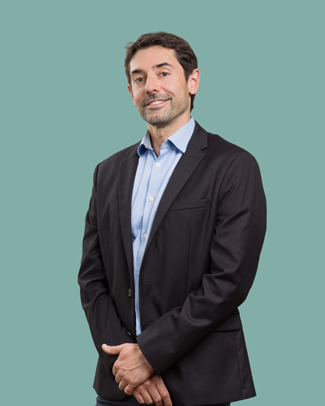
Nice To Meet You - Evelina Breschi, Regonal Office HES-SO
more information less informationWhat was your career path before Euresearch?
I was once an experimental physicist. I worked from 2002 to 2014 in atomic spectroscopy and its application in the development of quantum sensors. In 2010, I was awarded an SNSF “Ambizione” career grant and when that came to an end, I decided to change direction towards research management. Since competitive funding instruments had financed my research activities, over the years I had learned a lot about how to write competitive proposals and how to manage research projects. Supporting researchers is a way for me to keep working in research without doing research.
How did you join Euresearch and what attracted you to the position?
I had the chance to join the Euresearch Regional Office at the HES-SO (University of Applied Sciences and Arts Western Switzerland) when it was created in 2018. It has been interesting since the very beginning. The Euresearch Network offered me a unique framework that helped me to develop and strengthen my research management skills.
At the end of 2022, the HES-SO Rectorate decided to merge international and national research support units, and they asked me to lead the new office. It was a great opportunity, so I jumped at it. Although it was a challenge, I got the chance to work with great people and we went through the building phase together.
What do you enjoy most about your work at Euresearch?
Firstly, the diversity: The Euresearch Network comprises very different institutions and serves a variety of clients. For me, this is one of the network’s top assets.
Secondly, the collaboration: We help each other to better serve our clients. Working together towards a common goal makes our work efficient and enjoyable.
What keeps you busy in your spare time?
I have a toddler, so all my free time at the moment is family time. I like it! We are re-discovering many activities thanks to him.
What is special about the Regional Office HES-SO?
We are a dynamic institution, so we shape our services to the evolution of our researchers needs—that is our mission.
Interest in European research and innovation programmes is relatively recent among our researchers. European projects used to be perceived as too complex and not readily accessible. When the office opened, we mainly worked to change that perception and I think we can say we succeeded. Proposal submission and success rates have significantly improved. Since the office opened, the overall HES-SO success rate has risen from less than 8% to an average of 13% and the number of projects have increased by 58%.
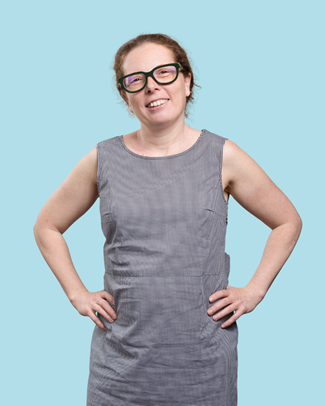
Nice To Meet You - Matthias Held, Regional Office Fribourg & Valais
more information less informationWhat was your career path prior to your current position?
I did my PhD at the Max Planck Institute for Chemical Ecology in Germany before moving to Neuchâtel for a postdoc. My research focused on unravelling the complex interactions between plants and insects. At the University of Neuchâtel, my role expanded over time to encompass project coordination, including both EU projects and Swiss National Science Foundation (SNSF) National Centres of Competence in Research. Eventually, I transitioned to the Euresearch Regional Office in Fribourg, which is affiliated with the University of Fribourg Research Promotion Service, where I have been for over a decade now.
What are the daily challenges you face in your work at Euresearch?
A significant aspect of my daily work involves supporting researchers as they navigate the landscape of Swiss and European research opportunities. Additionally, I provide guidance to our researchers here at the University of Fribourg on applications to the SNSF, offer advice on fostering successful scientific careers and on Open Science topics. Challenges I face include the constantly changing framework conditions, both in terms of Switzerland's association to Horizon Europe and the conditions of participation for Swiss-based researchers.
What do you enjoy most about your job?
There is much to enjoy about working at the Euresearch Office. I get immense satisfaction from the collaborative environment we have cultivated as a team. Particularly during high-pressure periods, such as submission deadlines for the Transitional Measures from the State Secretariat for Education, Research and Innovation, our teamwork shines. The Euresearch Network is also indispensable here, providing quick, uncomplicated, and friendly help if we have questions or problems. Our retreats and networking events also provide fantastic opportunities for sharing knowledge and connecting with others.
However, the most rewarding aspect of my job is the interaction with researchers, especially the next generation of scientists. Their enthusiasm and innovative ideas continually inspire me!
What brings you the most inspiration during your free time?
When I am not working, you can find me in my somewhat overgrown but flourishing garden. My colleagues, who have to take the surplus pumpkins and zucchinis off my hands, can confirm this. I also spend a lot of time in the great outdoors, for example canoeing on one of the many Swiss lakes or camping in the wildest and remotest corners of Europe or southern Africa. These experiences recharge my batteries and provide fresh perspectives that I bring back with me to my work at Euresearch.
What is special about the Euresearch Regional Office Fribourg?
Given that 4 out of 5 faculties at the University of Fribourg are based in the social sciences and humanities, we see a lot of applications from these fields. The relatively small size of the university also allows us to get to know many of our researchers personally, facilitating pleasant, uncomplicated exchanges. Another special aspect is that our university is bilingual (French and German). In addition to university researchers, we also support Agroscope facilities across western Switzerland and companies in the cantons of Fribourg and Valais.
If you drop by our offices, we would be delighted to give you a tour! I should also mention that we are located right next to the famous Villars Chocolates café and boutique.
Interviewer: Maya Meier, Euresearch Communication
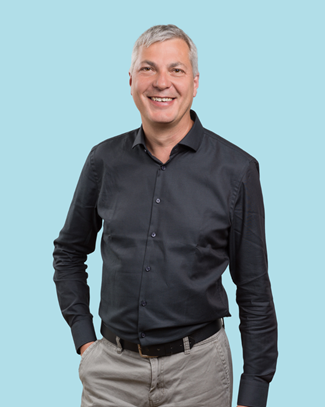
Nice to Meet You - Eve Silvferberg, Regional Office Northwestern Switzerland
more information less informationWhat was your career path before you joined Euresearch?
I studied biology at the University of East Anglia in the UK, where I grew-up. After graduating, I started my research career in molecular plant pathology. Switzerland is clearly one of the top research nations and it was great for me to have the opportunity to complete my PhD at ETH Zurich. During that time, I was first introduced to EU projects, as my professor was a participant in a pan-Europeanconsortium. Plant pathology is a relatively small community, but I already saw at that time how the framework programmes bring together experts from different countries and disciplines.
What attracted you to your current position and what do you enjoy most?
I have been working for Euresearch in Basel since 2008. With its strong focus onlife sciences, Basel was an attractive destination for me. The job description was very broad and this accurately reflects the variety of our work. This is one of the things I love about my job – it is very varied, there is always something new to learn and it is certainly never boring! I also enjoy the interaction with so many dedicatedpeople. We have the privilege to accompany very interesting people on their research journey. We advise researchers from all areas of research and this makes the job very rewarding.
What are your daily challenges?
The political situation has been the biggest challenge in recent years. When I firstjoined Euresearch, the European Research Council (ERC) had only just beenestablished. In Basel, we had 3 grants from the first call. The scheme was very newand not so well known. This has obviously changed over the years. We have now had more than 60 ERC grants in Basel and the international recognition is very important to our grantees and the university. The lack of access for early-career researchers to this scheme and the Marie Skłodowska-Curie Actions is very damaging for the research community. It is frustrating to see excellent research being hampered by a political situation. Let us hope this year brings more positive developments in this respect.
What is special about the Regional Office University of Basel?
The team of course! It is a real pleasure to work with my colleagues every day. I also think the location makes it quite special. With Basel's close proximity to France and Germany, you really feel the international atmosphere. There is a lot of openness for European collaboration in Basel and this makes our job much easier.
Interviewer: Maya Meier, Euresearch Communication Team
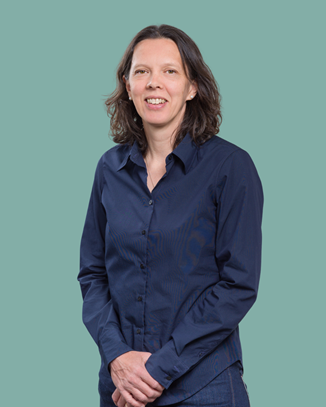
Nice to meet you - Martina Pestoni, Regional Office Ticino
more information less informationHow long have you been working for Euresearch and what was your career like beforehand?
I have been working for Euresearch for almost 10 years now. Before that, I did my Bachelor and Master’s degrees in Slavic studies, English literature and linguistics, and comparative literature, graduating from the Faculty of Arts of the University of Lausanne in 2013. At the beginning of 2014, I joined the Euresearch Office Ticino, integrated in the Grants Office of the Università della Svizzera italiana. I always enjoyed being immersed in a multicultural environment – hence the humanistic studies – and therefore I was very lucky to find this particular job. The R&I landscape, with its many features and peculiarities, gives me the opportunity to constantly learn new things and be confronted with different approaches.
What are your daily work challenges?
In the current situation, where Switzerland is not associated to Horizon Europe, I have to pay more attention to eligibility conditions and participation requirements, as well as being ready to suggest alternative funding schemes. While this is quite challenging, it also motivates me in the sense that I am happy when I see that researchers are continuing to participate in EU projects.
What do you enjoy most about your work at Euresearch?
I love the interaction with researchers from all over the world who work in completely different domains. Helping people is what drives me in my daily work, so enabling researchers to focus mostly on the scientific part of a grant application, relieving them of some of the administrative burden, always pushes me forward. I also love being part of Euresearch because it is like a family. We are a strong network and support each other in the best possible way. I greatly enjoy the exchanges with colleagues all over Switzerland, sharing best practices but also common issues. I never feel alone!
What else inspires you?
In my free time, I love hiking and running in the woods. When I want to relax, I enjoy baking and taking care of my many plants. On weekends, I also do volunteer work in a fair-trade store, to try to make a small contribution to a sustainable development movement that puts people’s dignity and the planet first.
Facts & Figures – Euresearch Office USI for the Region Ticino
Being a small office allows us to support a wide range of researchers in different disciplines and at different career stages. We have many ongoing Horizon 2020 projects, especially ERC Grants, and now with Horizon Europe, we are starting to have more collaborative projects.
Interviewer: Maya Meier, Euresearch Communication Team
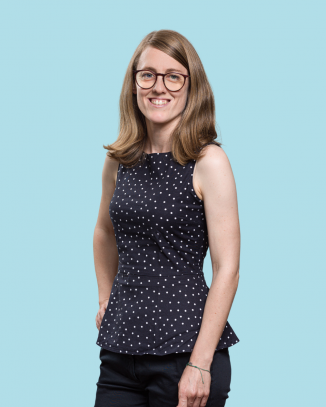
Nice to meet you - Nadine Liechti Gaxholli, Head of Secretariat
more information less informationWhat was your career path before Euresearch and what attracted you to your current position?
After graduating from Hotel Management School, I worked for a while in a hotel. Then I completed further education as a business specialist and changed to an import/export company. I stumbled upon Euresearch by chance and the job interested me straight away thanks to the international nature of the organisation, its link to the research landscape, and the diversity of the work environment.
17 years is a long time! How have Euresearch and your role in it evolved?
When I started, there were about 12 people and the Regional Offices were smaller and much fewer in number. Back then, my tasks were purely secretarial. Within 5 years, we had almost doubled in size. During that time, my work became more varied and I gained more responsibility and independence. Change is ongoing within Euresearch and my work will eventually be different again. I am looking forward to it!
What do you enjoy most about your work at Euresearch?
The independence I have in doing my job is definitely something I appreciate a lot. Over the years, I've been able to learn new things, for example regarding the finances, which is now one of my favourite tasks. Also, I find the research and innovation landscape very exciting, and even though my role has nothing to do with it, I am learning something for myself. Finally, family and career are completely compatible at Euresearch, so I don’t have to compromise. I'm very thankful for that.
What do you do in your free time?
My kids and husband are everything to me and I love spending time with them. I enjoy organising family outings as well as baking and just sitting with them and friends over coffee and cake. When we have time, my husband and I drive somewhere with no destination in mind, just to enjoy the landscape.
Facts and Figures
The Secretariat is part of Central Services, the team that supports Euresearch by providing administrative, IT and communication services. The team is responsible for human resources management, technology infrastructure, process management and corporate identity. Euresearch has 1 Network Office in Bern and 16 Regional Offices, with a total of more than 100 personnel throughout Switzerland.
Interviewer: Andrea Iafelice, Euresearch Communication Team
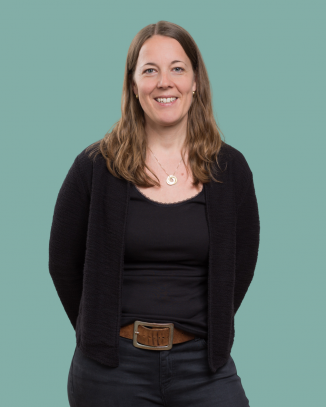
Nice to meet you - Jennifer McClung, National Contact Point (NCP)
more information less informationWhat did your working days as a postdoc look like, and how did you join Euresearch?
As a postdoc at the University of Neuchâtel, I carried out a variety of activities, from managing experiments and writing up publications to teaching cognitive science. While I enjoyed the work, it became almost impossible to find grants and the pressure of academic life was no longer compatible with my family life. So I decided to look for something outside academia. I wanted a more stable position but something that would keep me close to research. A friend of mine alerted me to the open position at the Euresearch Regional Office in Neuchâtel and I am glad she did!
Which elements of your job tell you that you made the right decision?
Firstly, I can still be close to the world of research. I work with researchers from all over Switzerland across many different domains. I interact with them and help with network building and proposal advice. As such, I feel like I can still make a difference to the state of research funding here in Switzerland. Secondly, I enjoy working at Euresearch because here I have found in my colleagues that rare mix of productivity, efficiency and humanity.
How does having a PhD support you in your daily work?
More than anything, doing a PhD teaches you how to think critically and how to write in a logical and clear way. I apply this on an almost daily basis as an NCP. For instance, being able to assess the structure of a proposal and the proposed research is a key part of my work. Doing a PhD is not only about learning about a single domain, but also about developing skills that transfer across domains. Given my background in both the natural and social sciences, I can now easily advise and help researchers from different backgrounds. This comes in handy as I am NCP for both ERC and Cluster 2.
You have lived in many countries. What could you no longer do without after having lived in Switzerland?
It's true.I originally come from Texas and I have lived in Scotland and the Ivory Coast, among other countries. I like the fact that things function in Switzerland – you can rely on basic things like infrastructure and the education system (I am especially impressed by Swiss schools). Although it seems to take a long time to make personal connections, Swiss people have a strong sense of community and civic duty, and this, I think, provides the basis for a transparent and functional society. What could I no longer do without? Definitely Gruyère cheese!
Facts & Figures
Euresearch NCPs offer a range of services from providing basic information and eligibility checks to giving detailed feedback on the content and structure of proposals. In a regular year, ERC NCPs review 40-50 proposals. In 2021, around 20 researchers received advice on European funding in Cluster 2 and 6 proposals were reviewed.
Andrea Iafelice, Interview
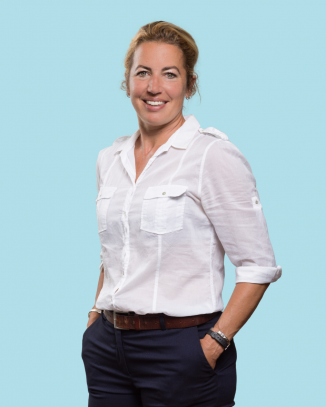
Nice to meet you - Sofia Karakostas, Regional Office Zürich
more information less informationWhat do you find especially inspiring in your work? When I was offered the chance to be Co-head, I saw it as a great challenge and an opportunity to learn more about the art of counselling. I knew it was my vocation to provide face-to-face support to people. During the first year, I realised how fascinating it was to counsel researchers in particular, so I am glad I took the job. My responsibilities have changed since then and now focus on the administration of the office, together with my Co-head, Agatha Keller. Our team serves researchers from two institutions, which brings great synergistic effects. And as for direct contact with researchers, I am happy to be able to still keep that up, albeit nowadays mostly in the scope of our Science Stories magazine.
You describe yourself as a Greek person in Zurich. Why is that? I was born and raised in Zurich, and I have lived in the city my whole life, but I grew up Greek. My parents moved here from Greece and I was deeply instilled in the culture from birth. I have always spent time with people from different backgrounds and origins. I suppose this is one of the reasons I like my job so much: EU-funded projects are about collaboration with partners in Europe, and an open mind and interest in people are prerequisites for success.
How do you see the future of Swiss-based researchers in EU projects? Having been a part of the Euresearch network since its beginning, I have witnessed different phases in Switzerland’s EU Framework Programme association status through the years. This brings me a certain calm in the face of the current situation. I am convinced that we will be associated again, even if we don’t know when. Meanwhile, researchers from Switzerland should not feel discouraged. They have a lot to offer European projects and there are many possibilities out there, even now.
What are your passions in life? I love cooking and can think of nothing better than spending time with family and friends around the table. I am also passionate about societal issues and politics, and have been a member of the Municipal Council of Zurich for about 2 years now.
Facts & Figures:
EU GrantsAccess has a team of 22 people. Under Horizon 2020, the office provided support to hundreds of funded projects at ETH Zurich (Excellent Science Pillar: 416, other Pillars: 171) and the University of Zurich (Excellent Science Pillar: 156, other Pillars: 63).
Hanna Estadieu, Interview
